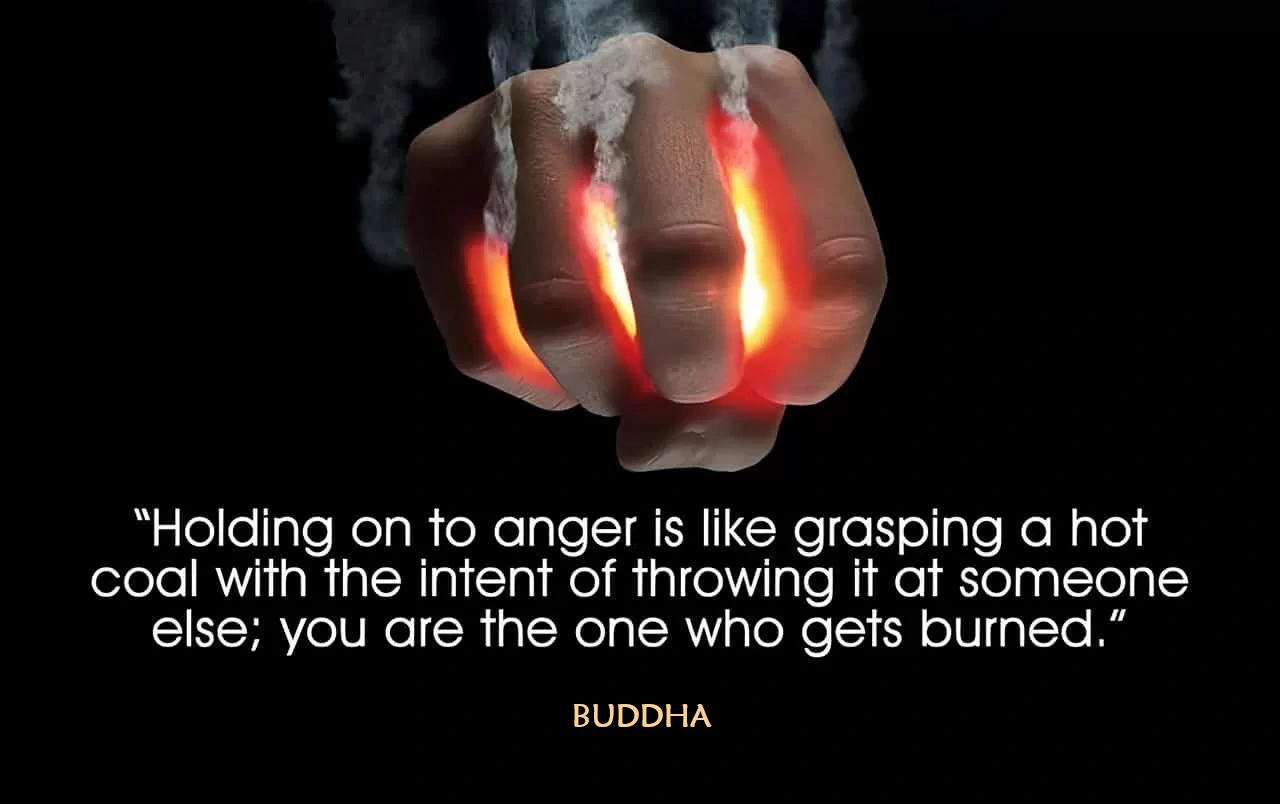Today's Friday • 10 mins read
— by Dr. Sandip Roy.
Trust has been a human necessity since prehistoric times. It helped us survive critical times and build communities.
But trust has a weakness. Once broken, it doesn’t return the same way, even if it’s someone you deeply love and care for.
The way to fix broken trust is to forgive them. Forgiveness benefits both your emotional and physical well‑being. It lifts the dark cloud of bitterness over your head.
When you forgive, you release your anger and blame toward the person or thing that hurt you. You also stop taking things personally and realize how expensive it is to hold a grudge.
But forgiving is hard. So how do you forgive someone who betrayed your trust?
How To Forgive Someone Who Broke Your Trust?
1. Redefine forgiveness as saying farewell to the memory.
Forgiveness is not about the other person. It’s about you. You are letting go of your pain, your anger, and your grudge. So find ways to forgive.
Fred Luskin, PhD, drawing on decades of experience and research, defines forgiveness as “remembering differently,” not forgetting.
If it is difficult to remember the event differently, reframe your forgiving them as forcing their presence out of your mind.
Don’t let them live rent-free in your mind.
When you forgive this way:
- they no longer occupy your headspace and pollute your other thoughts,
- you can replace your dark emotions with better emotions,
- you no longer waste your time overthinking their act,
- you free yourself from the weight of grudges,
- you decide to stop wanting to punish them.
As they say, the best revenge is to live a happy life. Forgiving is giving yourself the green light to do those things that make you happy.
Forgiving does not mean:
- forgetting the act,
- having to make up with them,
- telling them that you forgave them,
- allowing them future breaches of trust.
Actually, no one has to forgive—forgiveness is a choice. You’re choosing to forgive, not to relieve them of their guilt or shame, but to restore your peace. Say farewell to the memory of the event.

2. Sit with your hurt feelings.
“Sitting with your difficult emotions” means allowing yourself to feel a difficult emotion, without judging or resisting. It can overwhelm you at first, but then you accept it, and finally move on.
Forgiveness means you can move on and make peace with yourself. That can happen once you have processed the difficult emotions resulting from the betrayal of trust.
Here’s how to sit with your difficult emotions:
- Find a quiet place where you won’t be interrupted.
- Take a few deep breaths to engage your parasympathetic system.
- Remember the event in detail. It may throw you in a tailspin, but bear with it.
- Name the emotion. What emotion are you feeling? Is it the right word to define it?
- Allow the emotion to act through. Don’t try to push it away or judge it. Just let it be.
- Pay attention to the physical sensations in your body. Where do you feel the emotion in your body?
- You will feel better as the emotion subsides and fades. Open your eyes and continue with your day.
The truth is, what happened was wrong, and it hurt you deeply. Now you have to process those emotions that resulted from it.
- Do not suppress your emotions or ignore their presence.
- Resist the urge to do things to distract you, or numb yourself with abusive substances.
You could write about your feelings to express your emotions. It’s called expressive writing therapy, and it can help you better process what happened.
Talk to a therapist to sort out the hurt you felt when someone you trusted too much let you down.
3. Be willing to listen, and be flexible.
When the trust-breaker is genuinely sorry and asking for your forgiveness:
Be willing to listen to them and be flexible in your next steps.
Listen to them as they open up about what made them do it. Let them express genuine regret for their actions, and have a sincere plan to change for the better.
Being flexible means you allow them the benefit of the doubt and feel that they will redeem themselves if given a second chance.
Perhaps:
- they did not know it equaled betraying your trust,
- they had acted without realizing it would hurt you,
- they had been let off earlier without consequences.
If you aren’t sure about forgiving them truly, grant them conditional forgiveness. It may mean receiving an apology, seeing genuine remorse, or being offered compensation for the harm done.
A simple way to do it is to accept their apologies but keep a watch on their future behavior. If they prove themselves, you may resurface your positive feelings for them.
Gradually, both of you may learn to see past the hurt.
Remember, everyone can learn and grow from their mistakes, and this process often brings about the most profound changes.

4. Stop blaming or punishing yourself.
You wouldn’t eat your food from the floor if a thief were to steal your plates, right?
Self-blame and self-punishment for someone else’s fault are similar; they are foolish ways to repair the hurt.
They stop you from moving past someone else’s hurtful act and slow down your journey to forgiveness.
What happened was not okay. But punishing yourself for what they did is completely not okay. You aren’t responsible for their actions.
Be your own friend. Focus on the positives in your life. Shift your attention to your strengths and the good parts of your life.
Always remember, your value doesn’t decrease based on someone’s inability to see your worth.
Your strength lies in rising above the hurt, learning from the past, and moving forward with grace. Healing is not an overnight process, but with patience and self-love, it’s entirely achievable.
In your journey of self-healing, keep reminding yourself that you are not to take blame for another’s mistakes.
Allow yourself to trust other people. Trust becomes stronger when you feel confident about showing your vulnerabilities.
That said, beware of people who might take advantage of your trust.
People like narcissists can betray your trust and then shift the blame onto you. This victim blaming is the cruel behavior of even vulnerable narcissists.
5. Remember their actions.
Please remember: Forgiving them does not mean forgetting what they did.
When you forgive someone, it doesn’t mean you erase the memory of what they did. It means you have chosen to let go of your negative feelings.
Do not hold on to the pain they caused — but remember their actions.
Remembering what happened safeguards your future mental well-being. It serves as a guide to lay your trust in better people in the future.
While forgiveness lightens your emotional load, it also provides valuable lessons. You become wiser, free yourself from bitterness and resentment, and move forward.
First offense, you can forgive them. Second time, stop trusting them with big things. In any case, don’t let them break your trust a third time.
“Forgiving is not forgetting.”
6. Consider their past trustworthiness.
Trust is presumptive in nature.
It means we presume that people who have been trustworthy in the past with others will continue to be trustworthy with us in the future.
While it is often a good possibility that people maintain their nature, it is often naive to believe that “a king’s trustworthy minister will be trustworthy to the king’s subjects.”
Another truth is that even if a person was completely trustworthy in the early days of your relationship, they will slip up sometimes later on.
They may stop fulfilling your expectations of trust when you have known each other for some time.
8 Practices to Enhance Forgiveness
- Focus On Your Gains: Think of the benefits you would have – more peace, more time for yourself and your loved ones, and more emotional freedom. You’re relieving yourself of the emotional baggage.
- Practice Empathy: Try to understand their situation. This was the best they could do; virtue was not their strong suit. This may help you see them as a flawed human being, making it easier to forgive.
- Acknowledge Your Feelings: Allow yourself to feel the hurt and anger without judgment. Label your emotions and process them to move faster toward forgiveness.
- Reframe the Narrative: Change the story you tell yourself about the situation. Instead of seeing it as a betrayal, see it as an experience that revealed their darker side. You learned not to trust them again.
- Set Boundaries: Forgiveness doesn’t mean you will tolerate their future offenses from now on. No. So set strong boundaries with them.
- Focus On The Present: Let the past be. Notice what good things are happening in the present moment. Mindfulness meditation can help reduce the weight of past hurts.
- Take Small Steps: Start with small acts of forgiveness, forgiving minor grievances. Gradually work your way up to bigger issues.
- Seek Support: Talk to friends, family, or a therapist about your feelings. Sharing your experience can provide new insights and make the process feel less isolating.
Psychology of Trust
Trust can be a state or an attitude. It’s a faith in the reliability, ability, or truth of someone that can change with circumstances and people. Morton Deutsch defined trust as the “confidence that one will find what is desired from another, rather than what is feared.”
Not everyone has the same ability to trust others.
Jane Penaz Eisner says that trust is a trait in close relationships, that is, it is stable over time and consistent across different relationships (Eisner, 1992).
Eisner found that dispositional trust (“the tendency to believe that others will behave in a trustworthy manner”) importantly influences friendship formation. Eisner laid out the three dimensions of trust: predictability, dependability, and faith.
While introducing the Interpersonal Trust Questionnaire (ITQ) in her Ph.D. dissertation, Eisner said,
“Departing from current state approaches, I argue that (1) trust in close relationships is a trait, and (2) dispositional trust importantly influences friendship formation.”
– Jane Penaz Eisner, Interpersonal trust in close relationships
People who score high on the ITQ (Interpersonal Trust Questionnaire) are more likely to form friendships, believe that their friends are trustworthy, and disclose personal information to their friends.
These findings suggest that dispositional trust may play a role in friendship formation.
Researchers Larzelere and Hudson found that when one person in a romantic relationship trusts the other, they base it on:
- Benevolence – whether the other person is interested in their good or merely seeking their own gain, and
- Honesty – whether they can believe in their declared intentions.
Final Words
Let’s close this with 3 quotes:
- “That’s the thing about trust. It’s like broken glass. You can put it back together, but the cracks are always visible–like scars that never fully heal.” — Hope Collier
- “Trust is like that. You can break it for a good reason. But it still remains broken.” — Harlan Coben
- “Breaking someone’s trust is like crumpling up a perfect piece of paper. You can smooth it over but it’s never going to be the same again.” — Unknown
√ Also Read: How To Rebuild Trust After Cheating?
√ Please spread the word if you found this helpful.
» You deserve happiness! Choosing therapy could be your best decision.
...
• Disclosure: Buying via our links earns us a small commission.
